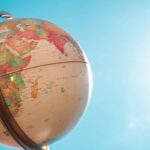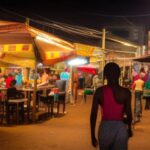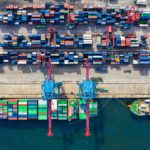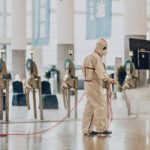Use knowledge and exchange to light up Africa
Last week I argued that if we want Africa to be lit up, we need to worry about knowledge, not electricity. If we generate and exchange enough knowledge, the electricity (and products and services and incomes) will come, as sure as day follows night.
In 1958 a gentleman called Leonard Read wrote a short, readable and very influential essay. It was called “I, Pencil.” Its premise was very simple. Pick up a pencil from your desk, and ask yourself the following question: could I, individually, make this simple implement from scratch? I hope you came to the correct answer: that you cannot. Your intelligence, your degrees, your skill with your hands will not help you – you cannot individually make something as simple as a pencil.
The pencil exists because millions of people from across the globe got involved in its production. Some felled the specific trees that form the wood. Others ran the timber factory that used machinery to produce wood of a specific size. Different people ran the electrical power company that distributed power to the timber factory. Yet others started and ran the pencil company that combined the wood with graphite mined elsewhere, and painted the pencil with lacquers obtained from others. And yet another group of people marketed and distributed that pencil so that it finally came to you somewhere in the world via a shop.
In other words, it is THAT complicated just to produce a pencil. So imagine the work that goes into producing a computer, an aeroplane, a medical instrument. The point is simplicity itself: pencils are still made, in their billions. They are not planned by any one person, their production is not coordinated throughout a supply chain by any one authority. Pencils come together because they are needed, and because human ingenuity and knowledge combines to produce them.
It is the same for any product or service. What is needed to produce them is not all the natural resources or technical skills present in one place; what is necessary is sufficient human ingenuity to create a market that delivers all the necessary components at the right time. And that is what Africa needs to light itself up: the human ingenuity and connectivity that allows it to make pencils and laptops, fruit juices and wines, banking products and legal advice.
Economists call this collective intelligence – the idea that what determines the inventiveness and rate of cultural change of a population is the amount of interaction between individuals. Writer Matt Ridley has released a new book (“The Rational Optimist”) which makes the case for the exchange of ideas very well. He points out that in the modern world, innovation is a collective enterprise that relies on exchange. If you combine the knowledge with which to produce things, with the means with which to exchange them, you will unleash the potential of your society.
And so, if we want to light Africa up, we must focus on the essentials. We must ensure that all children get through to at least a decent secondary school and half of those obtain a tertiary education of some sort – not an impossible goal. This will give the population the basic building blocks of knowledge. But that is not all. We must also give the children of Africa the roads and the telephone lines and the broadband connections that allow them to connect and exchange products, commodities and ideas.
A knowledgeable and exposed populace will drive all progress in Africa. Not only will it create products and services and content, but it will also create the institutions that manage and regulate its economies. It will possess the discernment and expertise to create democracies that work, and elect leaders that deliver.
So it has been all around the world. Societies that remain primitive are isolated and uneducated. Those that prosper have attained a degree of knowledge and have learned to exchange and trade. Did you know that the indigenous people of Australia, sparsely populated and cut off from the rest of world, never experienced the transition from hunting and gathering to agriculture? Australia never developed a collective brain large enough until migration brought in new ideas and people.
So to light up Africa, we know what we have to do. We need learning, expertise and mastery. We need technical institutes and research units. We need business schools and colleges of science. We need people to meet, trade, exchange, challenge, fertilise. Any visionary leader for Africa, any strategic plan for Africa, must have these components as the basic building blocks.
We are lucky. We live in the era of the internet and mobile connectivity. If we can deliver just those vital tools to our people, we could make huge advancements in one generation. If you were put in charge of an investment budget for Africa, I would ask that you focus on just a handful of high-impact things: quality education at all levels; health; roads and infrastructure; communications and connectivity. The rest will all follow from there.

Buy Sunny Bindra's new book
The X in CX
here »
Popular Posts
- My books of the yearDecember 14, 2025
- Confessions of an explaining personDecember 7, 2025
- Here’s why you should become foolishNovember 30, 2025
- How to listen, really listenNovember 16, 2025
- Is AI hiring your company into oblivion?November 23, 2025















